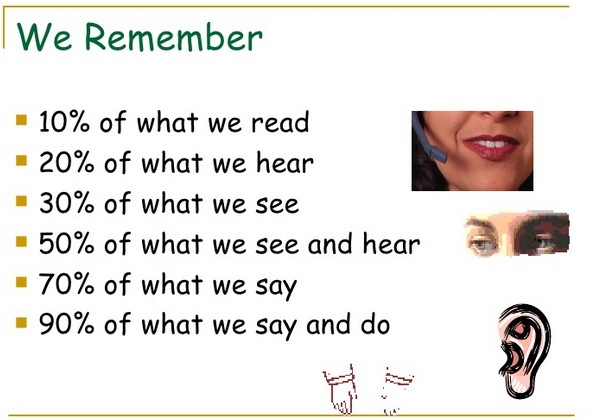Exams Hacks: 6 Ways to Better Prepare for Your Exams (Without Studying)
Exam stress is something that affects a huge number of students of all ages every year; the number of counseling sessions due to exam stress is dramatically rising year after year – a worrying fact.
In order to effectively prepare for exams without feeling completely stressed out, it’s not enough to just study the exam material and hope to remember everything. Even though studying in an effective and organized manner is clearly fundamental, boosting your memory through activities which actually don’t relate to studying can go a long way in making sure you ace your exams.
These exams hacks apparently don’t have much to do with studying, but they will effectively help you retain more information, improve memory and avoid stress before exams.
Great Memory Boosting (Exams Hacks) Which Don’t Involve Studying

1. Exercise and Memory are Connected
Studies have shown that exercise is effective in boosting memory and brain power.
As little as 20 to 30 minutes of exercise before an exam can really improve performance and give you a confidence boost.
Exercise increases oxygen flow to the brain, reducing inflammation and stimulating growth and survival of brain cells. In doing this, it stimulates the hippocampus, which is known as the memory centre in the brain.
Exercise also improves mood and sleep, and can help you fight stress and anxiety, two frequent causes of cognitive impairment which lead to subpar exam performance.
Various studies have demonstrated that the parts of the brain dedicated to memory and thinking are more developed in people who regularly exercise.
As an added bonus, exercise reduces your odds of developing stroke, cardiovascular disease and diabetes and promotes weight loss.
2. All-Nighters Are Not the Solution
While you think that studying all night will help you ace your exams, studies have shown that not getting enough sleep can impair performance.
Your brain assimilates the information you have learned during the day while you sleep, creating stronger connections between neurons and solidifying memories.

Furthermore, not getting enough sleep will leave you feeling groggy and unfocused, with a lot of jumbled, unorganized information in your brain. On the other hand, good quality sleep helps you maintain focus and alertness, improving performance.
It’s also unlikely that you’ll be able to cram all the information in the last day or two; make a study schedule which allows you to study regularly over a larger stretch of time, without pulling all-nighters and losing sleep.
3. Take Advantage of Olfactory Memory
Studies show that the sense of smell is very closely linked with memory; out of all the senses, it’s probably the one with the strongest relationship to memory.

Smells can transport us to a different time and place, suddenly evoking particular memories, such as a childhood meal or a special holiday. This happens because a certain scent acts as a trigger and brings back the memory of a long-forgotten event.
The famous writer Marcel Proust recalls how a simple bite of a madeleine suddenly evoked a strong childhood memory of his aunt giving him that very same treat before mass.
Try spraying an unfamiliar scent while studying and then spray it again just before taking your exam; though this may seem random, it can jog your memory and bring back facts and figures which you studied while inhaling that specific scent.
4. Eat Memory Boosting Foods
Our bodies need fuel to function, but so do our brains. If we provide our mind and body with unhealthy junk food, the effect on our memory is going to be harmful.
Scientific literature is pretty much unanimous in confirming that healthy eating and memory are related; our brain needs the right kind of fuel to perform well.
This fuel preferably comes in the form of complex, whole grain carbohydrates which provide the longest lasting power boost for our memory. Simple carbohydrates, however, tend to provide a short burst of energy but are quickly followed by a crash, which leaves us feeling tired and unfocused.
If you’re looking for a brain food to help you in getting awesome grades, make sure you check out the These Brain Foods. It really helped me out.
Other foods with demonstrated memory boosting properties are foods rich in Omega-3, such as nuts, fish, broccoli and certain types of beans, and all kinds of fruit and vegetables.
Remember to have a healthy, nutrient dense breakfast on the day of your exam as well, to make sure optimal brain performance.
5. Take a Break and Read a Book
Read something other than your study material, ideally a work of fiction. You may feel guilty for not spending every second of your waking life on your study material but reading something you love will help you relax and relieve stress, while boosting cognitive function and improving memory and empathy.
Reading will also help you regain focus and concentration. In today’s world we are constantly distracted by electronic stimuli coming from smartphones, televisions, tablet and other devices.
Spending time away from these distractions, immersed in your favorite paperback can really help you center yourself and fight off anxiety. A funny novel is also a good choice, as laughing has a number of wonderful benefits for your mind and body; laughing triggers endorphins and relaxes the body, reducing stress. This will allow you to stay focused and accomplish your studying goals.
Avoid using tablets or other devices which provide an easy internet access; it’s all too easy to open your social media profiles and greatly extend your study break from five minutes to a full hour.
You definitely need to take study breaks, but make a conscious effort to avoid distractions which will suck up your time and leave you more stressed than before.
6. Positive People Have Better Memory Skills
Remember to stay positive! Regardless of IQ, studies have shown that a positive attitude helps in improving memory and lessening anxiety, even though clearly it is not the only factor for exam success.
In particular, positivity, just like exercise, improves the way the hippocampus functions, therefore improving memory as well.
A positive attitude can really make a difference in your exam results, or perhaps give you the extra motivation to complete that important essay or assignment which you need to turn in.



These exam hacks would be a huge help for students.